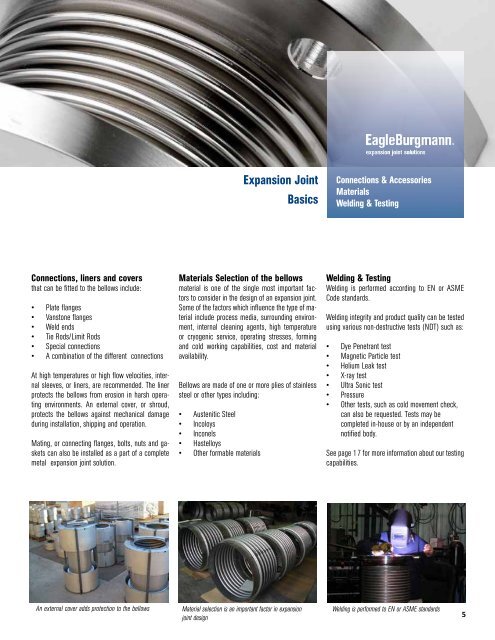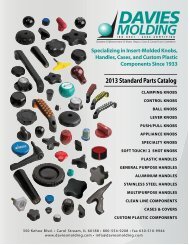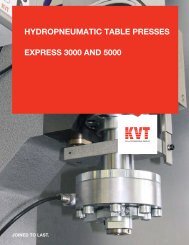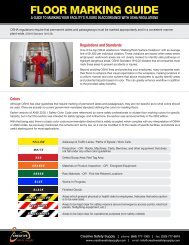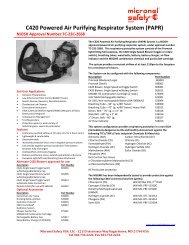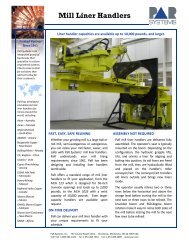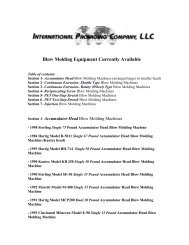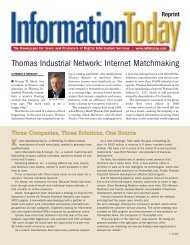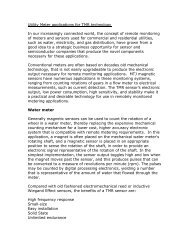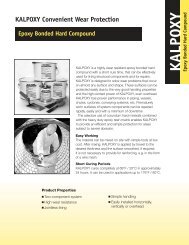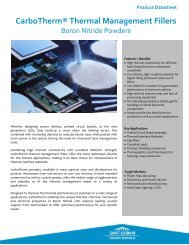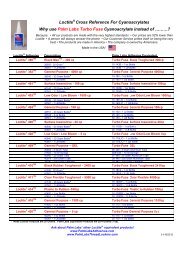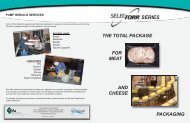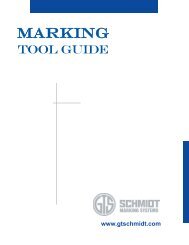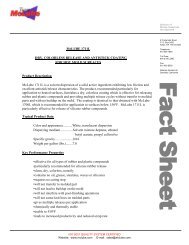Metal Expansion Joints - ThomasNet
Metal Expansion Joints - ThomasNet
Metal Expansion Joints - ThomasNet
You also want an ePaper? Increase the reach of your titles
YUMPU automatically turns print PDFs into web optimized ePapers that Google loves.
Connections, liners and covers<br />
that can be fitted to the bellows include:<br />
• Plate flanges<br />
• Vanstone flanges<br />
• Weld ends<br />
• Tie Rods/Limit Rods<br />
• Special connections<br />
• A combination of the different connections<br />
At high temperatures or high flow velocities, internal<br />
sleeves, or liners, are recommended. The liner<br />
protects the bellows from erosion in harsh operating<br />
environments. An external cover, or shroud,<br />
protects the bellows against mechanical damage<br />
during installation, shipping and operation.<br />
Mating, or connecting flanges, bolts, nuts and gaskets<br />
can also be installed as a part of a complete<br />
metal expansion joint solution.<br />
Materials Selection of the bellows<br />
material is one of the single most important factors<br />
to consider in the design of an expansion joint.<br />
Some of the factors which influence the type of material<br />
include process media, surrounding environment,<br />
internal cleaning agents, high temperature<br />
or cryogenic service, operating stresses, forming<br />
and cold working capabilities, cost and material<br />
availability.<br />
Bellows are made of one or more plies of stainless<br />
steel or other types including:<br />
• Austenitic Steel<br />
• Incoloys<br />
• Inconels<br />
• Hastelloys<br />
• Other formable materials<br />
<strong>Expansion</strong> Joint<br />
Basics<br />
An external cover adds protection to the bellows Material selection is an important factor in expansion<br />
joint design<br />
Connections & Accessories<br />
Materials<br />
Welding & Testing<br />
Welding & Testing<br />
Welding is performed according to EN or ASME<br />
Code standards.<br />
Welding integrity and product quality can be tested<br />
using various non-destructive tests (NDT) such as:<br />
• Dye Penetrant test<br />
• Magnetic Particle test<br />
• Helium Leak test<br />
• X-ray test<br />
• Ultra Sonic test<br />
• Pressure<br />
• Other tests, such as cold movement check,<br />
can also be requested. Tests may be<br />
completed in-house or by an independent<br />
notified body.<br />
See page 17 for more information about our testing<br />
capabilities.<br />
Welding is performed to EN or ASME standards<br />
5


